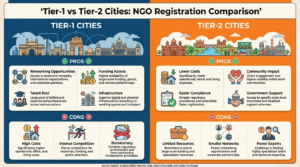Not all crimes are treated the same under the law. The justice system classifies offenses as misdemeanors or felonies, with key differences in severity, legal consequences, and long-term impact.
The way a charge is classified can have lasting effects on a person’s future, from employment opportunities to personal freedom.
Since laws vary by state, understanding these distinctions is essential. Individuals facing criminal charges can benefit from the guidance of a criminal defense attorney at Stroleny Law who can help navigate the legal complexities and work toward the best possible outcome.
This article explores the key differences between misdemeanors and felonies, how they are prosecuted, and their lasting impact on individuals and society.
What is a Misdemeanor?
Misdemeanors are less severe offenses that generally result in lighter penalties such as fines, probation, or up to one year in jail (typically served in county jail).
Common Misdemeanor Offenses:
- Petty theft—Shoplifting items below a specific value (varies by state, often under $1,000)
- Simple assault—Minor altercations without serious injuries
- DUI (first offense) – Driving under the influence without injury or prior convictions
- Vandalism—Property damage below a state-defined monetary threshold
Penalties for Misdemeanors:
- Fines ranging from a few hundred to several thousand dollars
- Community service or participation in rehabilitation programs
- Jail time of up to one year, usually in a county jail
- A criminal record, which can affect employment, housing, and licensing opportunities
What is a Felony?
Felonies are more serious crimes that carry harsher penalties, often including more than one year in prison. These crimes involve significant harm to individuals or society and are handled in higher courts.
Common Felony Offenses:
- Homicide—Murder or manslaughter
- Aggravated assault—Assault with a deadly weapon or serious bodily injury
- Armed robbery—Theft involving weapons or threats of violence
- Drug trafficking—Possession and distribution of controlled substances in large quantities
Penalties for Felonies:
A felony is serious when compared to a misdemeanor. As such, the penalties are severe as well. Repeat offenders are awarded some of the harshest punishments.
- Prison sentences exceeding one year, often in state or federal prison
- Heavy fines, which can exceed $100,000, depending on the crime
- Loss of civil rights, such as voting and firearm ownership
- Difficulties in expungement, making the conviction a lifelong burden
Beyond the Sentence: Understanding Justice and Second Chances
As Bryan Stevenson, a leading advocate for criminal justice reform, once said, “Each of us is more than the worst thing we’ve ever done.”
A criminal charge, whether a misdemeanor or felony, does not define a person—but its consequences can shape their future. Even minor offenses can create obstacles in employment and housing, while serious convictions can strip away fundamental rights, making reintegration into society incredibly difficult.
However, the legal system is not without hope. Expungement, sentencing reforms, and rehabilitation programs offer opportunities for individuals to rebuild their lives. Understanding these legal avenues is essential—not just for those directly affected but for the broader community, as a justice system that values fairness and second chances benefits everyone.





Be First to Comment